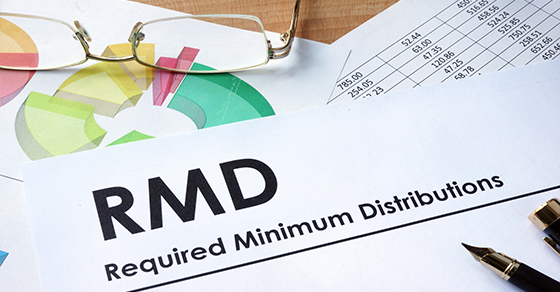Estimated Tax Penalty and Interest Waiver for Individuals Who Received Unemployment Benefits in Tax Year 2020
- ByPolk & Associates
- Feb, 11, 2021
- All News & Information, COVID-19 Resources
- Comments Off on Estimated Tax Penalty and Interest Waiver for Individuals Who Received Unemployment Benefits in Tax Year 2020
Source: State of Michigan This notice establishes an automatic waiver of all penalty and interest related to estimated taxes owed by individual income taxpayers who received unemployment benefits during tax year 2020. Estimated Payment Obligation. Section 301(1) of the Michigan Income Tax Act requires every person whose annual tax is expected to exceed $500 or more […]
Are your supervisors adept at multigenerational management?
- ByPolk & Associates
- Feb, 04, 2021
- All News & Information
- Comments Off on Are your supervisors adept at multigenerational management?
The COVID-19 pandemic has emphasized the importance of business leadership at every level, including supervisors. Today’s supervisors need to develop flexible styles when dealing with multiple generations. Younger employees (Millennials and Generation Z) tend to have different needs and expectations than older ones (Baby Boomers and Generation X). Although financial security is highly valued by every generation, Millennials and Gen Z may more highly prioritize a well-rounded benefits package, especially mental health benefits. Supervisors should encourage and guide employees to optimally use their benefits. We can help you develop cost-effective strategies for upskilling your supervisors.
The power of the tax credit for buying an electric vehicle
- ByPolk & Associates
- Feb, 04, 2021
- All News & Information
- Comments Off on The power of the tax credit for buying an electric vehicle
Although electric vehicles are a small percentage of the cars on the road today, they’re increasing in popularity. And if you buy one, you may be eligible for a federal tax break. The tax code provides a credit to purchasers of qualifying plug-in electric drive motor vehicles including passenger cars and light trucks. The credit is equal to $2,500 plus an additional amount, based on battery capacity, that can’t exceed $5,000. Therefore, the maximum credit is $7,500. There are a number of requirements to qualify and the credit may not be available because of a per-manufacturer cumulative sales limitation. (Tesla and GM vehicles are no longer eligible.) Contact us if you want more information.
The cents-per-mile rate for business miles decreases again for 2021
- ByPolk & Associates
- Feb, 04, 2021
- All News & Information
- Comments Off on The cents-per-mile rate for business miles decreases again for 2021
A lower IRS mileage rate means smaller tax deductions for business miles for 2021. The optional cents-per-mile rate used to calculate the deductible costs of operating an auto for business has decreased by one-and-one-half cents to 56 cents per mile. It was 57.5 cents for 2020 and 58 cents for 2019. The rate partially reflects the current cost of gas, which is down from a year ago. This mileage rate is useful if you don’t want to keep track of actual vehicle-related expenses. But you still must record certain information, such as the mileage, date and destination for each trip. The mileage rate can also be used for reimbursing employees. Many rules and limits apply. Contact us for details.
View your financial statements through the right lens
- ByPolk & Associates
- Jan, 27, 2021
- All News & Information
- Comments Off on View your financial statements through the right lens
How can you best extract useful insights from your financial statements? One way is to view your financial statements through a variety of “lenses” provided by key performance indicators (KPIs). For example, working capital (difference between current assets and current liabilities) is a relatively simple KPI for measuring liquidity. Various KPIs called turnover ratios show how efficiently companies manage their assets. And, to assess profitability, private companies can look at profit margin (net income divided by revenue) and gross margin (gross profits divided by revenue). Contact us with any questions you might have about generating financial statements and getting the most out of them.
Don’t forget to take required minimum distributions this year
- ByPolk & Associates
- Jan, 27, 2021
- All News & Information
- Comments Off on Don’t forget to take required minimum distributions this year
If you have a traditional IRA or tax-deferred retirement plan account, you probably know that you must take required minimum distributions (RMDs) when you reach a certain age. Once you attain age 72 (or age 70½ before 2020), you must begin taking RMDs from traditional IRAs and certain retirement accounts. If you don’t withdraw the minimum amount each year, you may have to pay a 50% penalty tax on what you should have taken out but didn’t. In order to provide tax relief due to COVID-19, the CARES Act suspended RMDs for calendar year 2020 but only for that one year. That means if you’re required to take RMDs, you need to take them this year or face a penalty. Contact us if you have questions.
The new Form 1099-NEC and the revised 1099-MISC are due to recipients soon
- ByPolk & Associates
- Jan, 27, 2021
- All News & Information
- Comments Off on The new Form 1099-NEC and the revised 1099-MISC are due to recipients soon
There’s a new IRS form for business taxpayers that pay or receive certain types of nonemployee compensation and it must be furnished to most recipients by Feb. 1, 2021. After sending the forms to recipients, taxpayers must file the forms with the IRS by March 1 (March 31 if filing electronically). The requirement begins with forms for tax year 2020. Payers must complete Form 1099-NEC to report any payment of $600 or more to a recipient. February 1 is also the deadline for furnishing Form 1099-MISC to report certain other payments to recipients. There’s no automatic 30-day extension to file 1099-NEC but an extension may be available under certain hardship conditions. Contact us for help.
Key Financial Ratios for Manufacturing Companies
- ByPolk & Associates
- Jan, 27, 2021
- Manufacturing
- Comments Off on Key Financial Ratios for Manufacturing Companies
A manufacturing company requires efficient use of inventory, equipment, and personnel to develop its products. A company uses the following financial ratios to evaluate its business. These ratios can also be used to gauge the appropriateness of operations and to determine how well the manufacturing process is going. These financial ratios are equally useful to […]
Care for Your Employees
- ByPolk & Associates
- Jan, 27, 2021
- Manufacturing
- Comments Off on Care for Your Employees
Cultivating a strong brand results from investing in the customer experience while concentrating on employee needs. Here’s how you can enrich the lives of your employees and their families to build a promising future. Concentrate on culture The difference between a good company and a great one is culture. This is a fact. According to […]
Five ways to jumpstart operations in the next normal.
- ByPolk & Associates
- Jan, 27, 2021
- Manufacturing
- Comments Off on Five ways to jumpstart operations in the next normal.
In the wake of radical and rapid disruptions from Covid-19, organizations have a window of opportunity to rewrite and transform their entire operations strategies The coronavirus pandemic has challenged supply and demand norms across sectors, and the speed of disruption exposed points of weakness and fragility in global supply chains and service networks. Yet at […]










You must be logged in to post a comment.